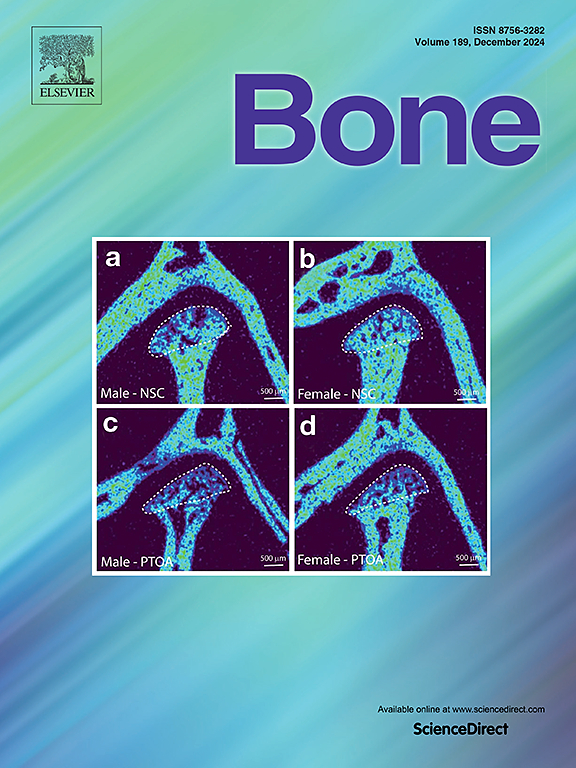Plasma proteomic markers of pain and emotional dysfunction in fibrous dysplasia/McCune-Albright syndrome
IF 3.6
2区 医学
Q2 ENDOCRINOLOGY & METABOLISM
引用次数: 0
Abstract
Pain in Fibrous dysplasia/McCune-Albright syndrome (FD/MAS) remains poorly understood and inadequately managed due to uncertainties regarding clinical or biological drivers. This cross-sectional pilot study aimed to use plasma proteomics to identify markers that inform on molecular pathways associated with pain and emotional symptoms in FD/MAS.
Seventeen individuals (15 females, 2 males), aged 16 to 63 years, with confirmed diagnoses of monostotic FD, polyostotic FD, or MAS participated in a single study visit conducted at Boston Children's Hospital and Massachusetts General Brigham. During the visit, participants completed validated questionnaires assessing neuropathic pain characteristics, pain interference, anxiety symptoms, depression symptoms, and perceived stress, and provided plasma samples. These samples were analyzed for 57 proteins using Olink proximity extension assay. Associations between protein concentrations and symptom scores were evaluated using Spearman's correlations with false discovery rate correction (|r| > 0.5, p < 0.05).
After FDR correction, the concentrations of seven proteins (TNF-α, LTA, CCL19, CSF2, CCL2, CCL4, CCL7) significantly correlated with pain interference, HADS-depression scores, or perceived stress. Four protein concentrations (TNF-α, CCL19, CSF2, CCL7) significantly correlated with multiple clinical measures.
This pilot study identified several pain-associated proteins in individuals with FD/MAS, suggesting that proteomic profiling may be a promising approach for discovering pain biomarkers. Larger, longitudinal studies are needed to validate these results and investigate whether targeting immune pathways can alleviate pain and improve emotional health in FD/MAS.
纤维结构不良/McCune-Albright综合征患者疼痛和情绪障碍的血浆蛋白质组学标志物。
由于临床或生物学驱动因素的不确定性,纤维结构不良/ mcune - albright综合征(FD/MAS)的疼痛仍然知之甚少,管理不足。这项横断面先导研究旨在利用血浆蛋白质组学鉴定与FD/MAS患者疼痛和情绪症状相关的分子通路标志物。17名患者(15名女性,2名男性),年龄16至63 岁,确诊为单枢性FD、多裂性FD或MAS,参加了在波士顿儿童医院和马萨诸塞州布里格姆总医院进行的单次研究访问。在访问期间,参与者完成了评估神经性疼痛特征、疼痛干扰、焦虑症状、抑郁症状和感知压力的有效问卷,并提供了血浆样本。用Olink接近延伸法分析了57种蛋白质。使用Spearman's与错误发现率校正的相关性来评估蛋白质浓度与症状评分之间的关联(|r| > 0.5,p
本文章由计算机程序翻译,如有差异,请以英文原文为准。
求助全文
约1分钟内获得全文
求助全文
来源期刊

Bone
医学-内分泌学与代谢
CiteScore
8.90
自引率
4.90%
发文量
264
审稿时长
30 days
期刊介绍:
BONE is an interdisciplinary forum for the rapid publication of original articles and reviews on basic, translational, and clinical aspects of bone and mineral metabolism. The Journal also encourages submissions related to interactions of bone with other organ systems, including cartilage, endocrine, muscle, fat, neural, vascular, gastrointestinal, hematopoietic, and immune systems. Particular attention is placed on the application of experimental studies to clinical practice.
 求助内容:
求助内容: 应助结果提醒方式:
应助结果提醒方式:


